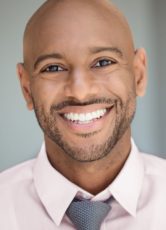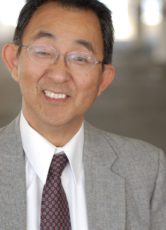How to Not Take Things Personally
March 13, 2023
You’re convinced you nailed a challenging audition, but at the end, the casting professional looks at his cell phone.
Someone who you believe has less skill than you lands the significant role for which you also auditioned.
You read a not-so-shining review about your theater performance in the local paper.
You make a bold choice in an acting class, and it’s met with an unexpected laugh by a classmate.
When such things occur, it’s easy to take them personally. Taking things personally hurts both your feelings and morale. But fear not; Frederik Imbo has got you covered.
Imbo is an actor who studied theater at the Royal Conservatory of Ghent and has several television credits. He is also the founder of the Belgium-based company Imboorling, which provides interactive training, workshops, and presentations to help people learn to communicate effectively. In the TEDx Talk “How Not to Take Things Personally?” Imbo assures the audience there are strategies to employ to lessen the impact of such deflating moments, and here are some of his insights:
Not taking things personally frees you
The part of ourselves that gets hurt and seeks to blame others is the ego, Imbo argues. “Our ego thinks that others should take us into consideration. Our ego doesn’t want to be criticized—hell no! Our ego wants to be acknowledged: ‘I’m right!’” But catering to the ego can deplete your energy. “When my ego takes over, I’m fighting all day. I’m in a constant struggle with the rest of the world, and it drains my energy,” he shares. “Wouldn’t it be so much easier to not take things personally? Because then no one has power over you. You’re free. You experience much more harmony and connection between you and other people.” Therefore he asks, “Do you want to be right or do you want to be happy?”
It’s not about me
What if the above-mentioned casting professional was waiting for an important text that just happened to be received at the end of your powerful performance? What if the classmate laughed after your performance because a centipede crawled past her shoe? What if that harsh critic in the newspaper had been in a fender bender right before your production, and it tainted his view of your performance?
To avoid taking things personally, shift the focus from “me” to “we.” “If I try to see the intention of the other one, I make space for understanding instead of irritation,” Imbo states. However, he acknowledges that seeing the positive intentions of others requires discipline and training. For this reason, once a week, Imbo works as a referee—and he’s sure to receive a lot of criticism during each game. “Now, before the match, I’m warming up. Not only physically, but also mentally,” he says. “I give myself some pep talk in the dressing room: ‘Frederik, watch out. Lots of things will trigger you during the game. You’re going to make decisions who some will not agree with, and they will shout unpleasant things at you.’ So I tell myself, ‘Frederik, don’t take it personally. It’s not about me. They just want to be right. They simply want their team to win.’ You see? When I focus on the intention of the other person, there’s no need to take it personally. When I apply this strategy very consciously, I admit it, I feel much more at ease on the field.”
Sometimes it is about me!
“When that strategy doesn’t work, it simply means it is about me!” he admits. In such instances, he needs to self-reflect and honestly question himself. “As a beginning referee, I still feel insecure. Especially me; I never played soccer. It is about me because it has something to do with my insecurity, my doubt about myself, or a part of myself that I haven’t come to terms with,” he says. Maybe that actor who you believed was lacking in ability had actually made long strides of growth over the past year or two, and now was able to capitalize on his or her strengths, largely by being open to feedback from instructors. Perhaps you underestimated him or her. “We can only take things personally if it somehow touches a raw nerve,” Imbo states. “And that’s the moment you give yourself some empathy.”
Give yourself empathy
Acknowledging the part of yourself that needs some growth can “give you a sense of peace and victory over yourself,” Imbo says. “At other times, it will be less easy and frustrating: “Ooh, this hurts. Darn! I’m longing so hard for recognition, and I feel sad if I don’t get it.” Instead of harshly judging yourself in such instances, be honest, but gentle and caring. “And most of all, be proud of the progress you are making,” he encourages.
Speak up
Another option is to gather yourself together and voice your feelings. “Just tell the other one what’s going on inside you,” he urges. “By opening up, by being vulnerable, by telling what you feel without blaming the other one, you increase the chance that the other one will understand you and take your needs into account.”
Your value always remains intact
No matter how difficult the road is, nothing will ever diminish your value as a person. Imbo concludes: “People may attack you, criticize you, or ignore you. They can crumple you up with their words, spit you out, or even walk all over you. But remember: Whatever they do or say, you will always keep your value.”
Want to get your acting career started? Sign up or log in to Casting Frontier and start auditioning today!
Related articles:
Voice-Over Talent Agent Portia Scott’s Advice for Actors
Tips From Top Talent Agents
Casting Directors on What’s Most Important About Self-Tapes
Seven Signs You Have A Professional Acting Career
June 28, 2023
I’ll never forget the eye-opening moment when I was asked by an agent whether or not I wanted to be an actor. I was crushed. After all, this was years into my ‘career’ (or what I thought was my career).
As difficult as it was to have that question asked, it changed my perspective. It made me realize that there is an industry standard and that – maybe – I wasn’t playing my cards right.
Now, I look at things differently. I learned to judge my work from the viewpoint of someone who would want to hire me.
Becoming a professional actor is all about a series of step-by-step accomplishments, much like in a college program. It will take hundreds or thousands of hours of studying, preparation, application and practice to get to a professional level. The actor hobbyist and the professional are vastly different.
Curious to know which category you fall under? Here, I’m going to provide some qualities that all professionals share to move forward and ultimately… make money.
1. Getting paid for your work
I would say that the first time you get booked for a paid project through an agent is a pretty good indication that you are on your way to being, or already are, a professional actor! Having said that, don’t skip out on your acting training just because you are booking work. Continuing your education feeds your momentum. If you’ve been working but haven’t taken a class in a while, consider taking something new to you or something that will strengthen a big weakness of yours.
2. You have a professional headshot
A portrait session with a reputable photographer (recommended by your agent or manager, most likely) that produces at least one theatrical headshot and one commercial headshot is essential. A simple black border with your name at the bottom (legibly- i.e. not in cursive!) will suffice. A selfie or Instagram photo will instantly make you less of a professional. And it could seriously damage your ability to book.
3. You have an Agent and/or ‘Team’
A top requirement to become a professional working actor, right after your training, is having a quality agent. Although the majority of your work should come through them, you may also find work yourself, and most actors are constantly looking. Try a range of agents until you meet one that jives with you and understands your goals.
Not all agents are created equal! One agent may not be enough, however, and you may require a manager, publicist, lawyer, PR agent or more to be adequately represented. You may also choose to have different agents representing you in different areas (one for voice, one for theatrical, one for commercial, one for print, one for stunts, etc). The more helping hands you have, the greater the chance for success.
4. You invest in yourself
Acting is an investment. Headshots, acting websites such as Casting Frontier, classes, etc. all take a significant chunk of change to maintain. However, those who take their careers seriously do not skimp on ways to further their careers. Of course, some things you can do on your own, such as social media updates, or maybe even writing and producing your own productions (Ben Affleck or Matt Damon often do this). Use your voice to create what you want to see in the industry.
5.You put acting first
This comes off as a simple one, however, it is far from it. Auditions happen fast, with little notice and often with high expectations. An actor who is constantly missing auditions, requesting a change of time slots or is available with limitations such as: only on weekends, only on nights or only during the day, may not be cut out for a position in the film industry. Give yourself the best shot possible, and that means putting acting first.
6. You’ve found your ‘sweet spot’
Many people struggle for years with good acting talent, or having a ‘look’ that is not in demand. You may find that your hair color or length is not catching the attention of professionals. For example, commercial spots love a good haircut shoulder length and above. If you’re not getting in the door, something may be off with your look or may not be on trend. Actors do not always get the perk of looking exactly how they want. Professionals learn to find their best ‘looks’ and stick to it.
7. You know how to fake it ’til you make it
That’s your golden ticket and your secret weapon. When you walk into the audition room, every casting director expects a professional regardless of experience level. A professional actor knows the rules of the casting room and is courteous. They keep their nerves in check, study the scene before arriving and are familiar with the script. If you’re a pro, you know how to slate well and have possibly seen the director’s previous work. These little things will make big impacts on the individuals you need to impress.
Whether you are a professional, aspiring, or acting as a hobby – remember to keep pushing forward, keep studying and keep showing up. Work on your positivity, support your industry peers, embrace your competition… and always, always be fearless!
Taylor Tunes (too-ness) is an actor located in Arlington, Texas.
Want to get your acting career started? Sign up or log in to Casting Frontier and start auditioning today!
You may also like:
- Tips for Performing Your Best Monologue
- What’s Your Vocal Range and Voice Type?
- The Top 3 Things a Hosting Agent Looks for in a Reel
Listening is Key: What Directors Look for From Actors in Auditions
June 9, 2023
I was speaking with a group of television and film directors and asked them what are the top 3 things they look for when watching actors audition. One of those items we agreed was essential: “listening and reactions.” Here, we’ll dive in and discuss why that is.
The reason was explained this way: Scenes are put together in post-production. Until that time, it’s not entirely clear when the director is going to need a reaction shot from an actor to liven up or help explain a scene. So in the audition, they’re looking closely to make sure that the actor doesn’t go flat – even for a moment – because that may be precisely the moment that your reaction is needed when a scene is being constructed.
They tell me that if an actor gives a solid reading, it’s obvious they know the requirements of the material and are skilled at bringing the words to life – even if it’s not exactly what they envisioned. On top of that, the actor has reactions that spark with honest, energetic life.
They’ll hire that actor over the actor who came closer to their vision in the reading but didn’t listen and react as well.
They figure that you can always direct a good actor to say a line differently, but it’s not as possible to direct them to be more compelling in their reactions.
As one of the directors said, “It’s like telling someone to be more interesting – and we don’t have time for that.”
They also agreed that in an audition, the focus and stillness that deep listening brings draws them into the reading and allows them to become fully involved with the actor’s emotional life through the intensity of their reactions. This makes them feel that they are already working with the actor.
This is in stark contrast to the actor who isn’t as focused on listening and reacting. This actor not only doesn’t draw them in, but they also appear to be reading at them, not speaking and listening with them.
Another positive benefit of deep, revealing listening appears when/if the audition is being taped. When directors are watching taped auditions it’s a two-dimensional experience. The actors who become contenders for the role are the ones who feel as if they are actually in the room with them.
These are the actors whose listening is so specific and powerful and whose reactions are so alive and original that they bridge the distance that the technology creates so that even if the director is watching them on an iPad in New York, they feel the actors’ specific energy and spark.
In order to have these jobs getting moments of reaction, you need a way of working that allows you to have the confidence to take the moments and to live in them. Most actors speed through the piece believing that it’s only their words that matter, and yet any director will tell you that it’s the reactions that are the actions of the scene.
Watching someone talk is not half as interesting as watching how those words are affecting another human being. It takes awareness, skill and guts to work this way – but it’s the only way to work if you want to book the job.
In closing, it’s good to remember that strong listening and reacting are not things that you can just pull out of thin air. The body goes to what it’s used to – and if the body isn’t used to the stillness and focus of listening in your daily life, it won’t go there in your work.
Paying attention to someone to the degree that you take in their words and feel them on multiple levels is actually pretty rare. Most people have mastered the art of “half listening:” listening just hard enough to plan their response. That’s not the type of listening that prompts the reactions that get jobs.
Practice in your daily life. Make a commitment to take people in as deeply as possible. See if you can turn your brain off and listen from the neck down. Feel your reactions in your body and let them pierce your heart.
As you continue to do this, you’ll find that your body will start to relax into a still, focused and open-hearted place that you can now access not only in your life but in your work.
And when this happens in your work, the people in the room will not just hear you but see you.
Remember, it’s the eyes that are the windows to the soul – not the mouth.
As we were wrapping up the discussion, we decided to see if we could create one sentence to sum up the importance of listening and reacting in the audition. Here’s what we came up with:
What you do with the words will get the director’s attention – but it’s what happens in your reactions that will get you the job.
Craig Wallace’s background in script development combined with his 20+ years of coaching actors enables him to find the job getting moments that others miss. His expertise in breaking down text and years of coaching experience has made him “L.A.’s go to private coach.” Sign up for his group or private classes at wallaceauditiontechnique.com
Want to land your next great acting role? Sign up or log in to Casting Frontier and start auditioning today!
You may also like:




